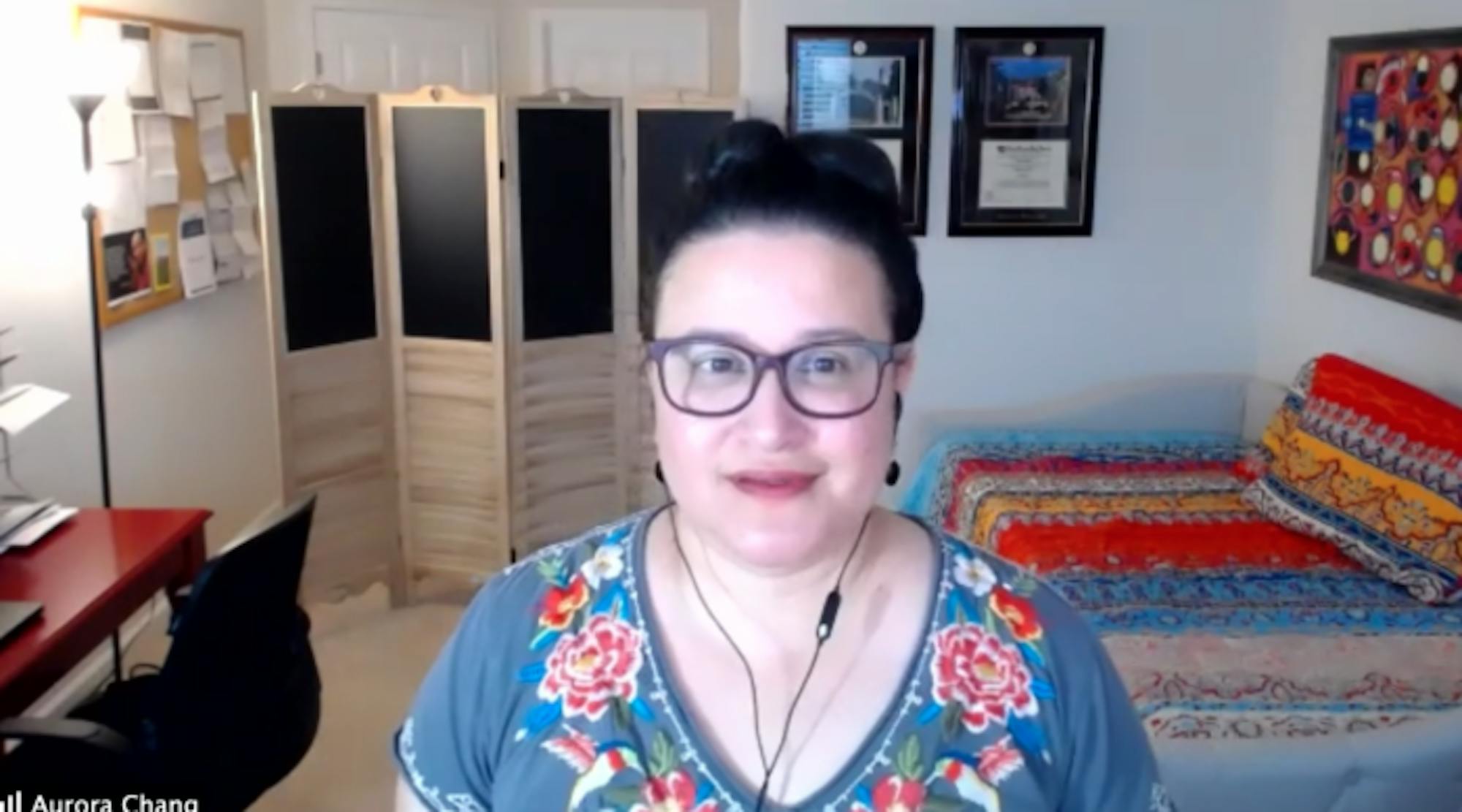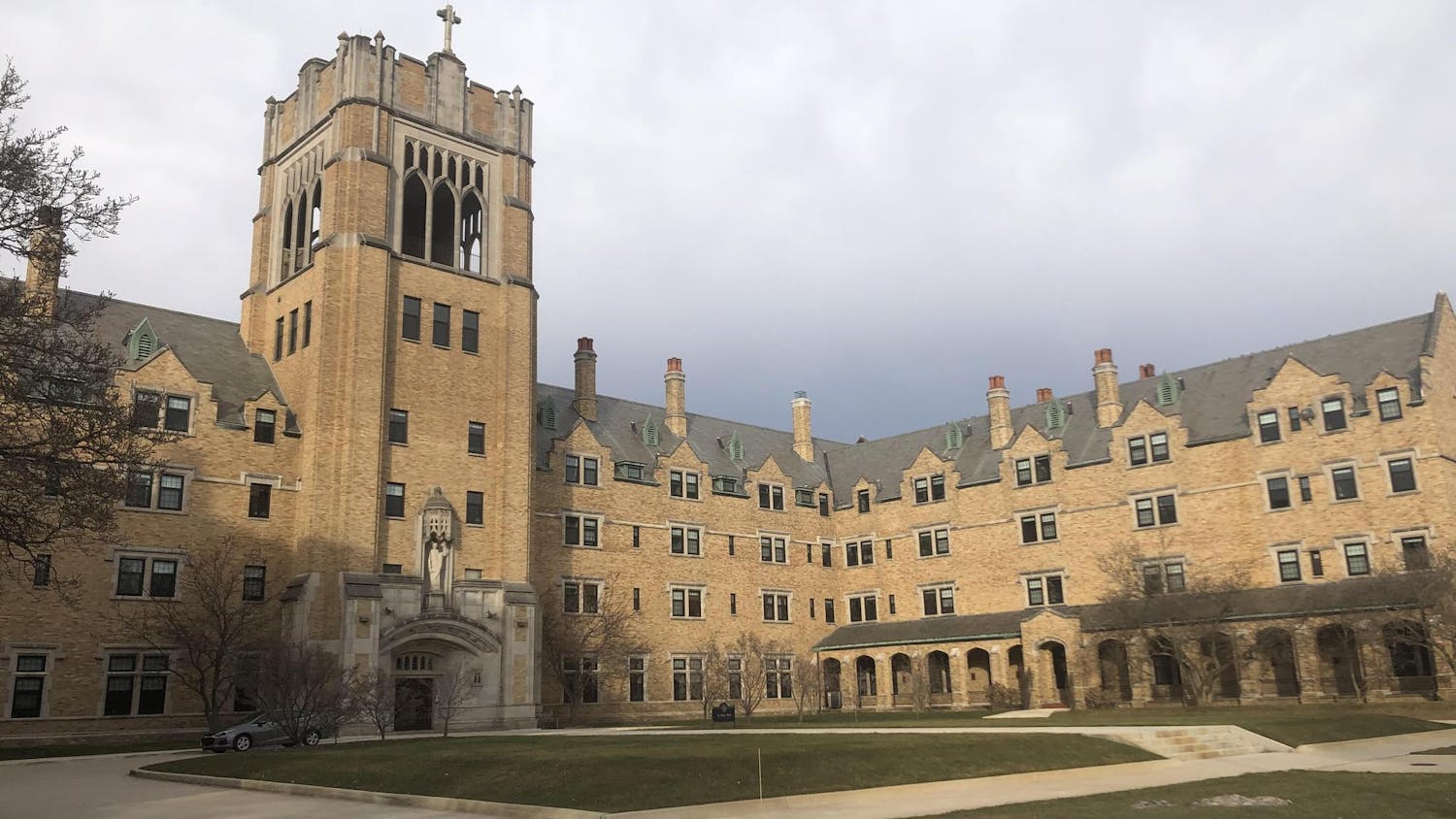Aurora Chang spoke about her experience transitioning from an undocumented immigrant to a hyperdocumented professor of higher education in a virtual lecture Tuesday evening. Chang was the keynote speaker of the Undocumented Student Week of Action sponsored by the Office of Student Enrichment.
Originally from Guatemala, Chang grew up in a family of undocumented immigrants in Richmond, California. She is now an associate professor of higher education at Loyola University Chicago, where she focuses on studying marginalized groups within the field of education.
Chang defined hyperdocumentation as the excessive production of documents, texts and papers in an effort to compensate for undocumented status or unworthiness.
“[It’s] in an effort to compensate for, in this case, my unsought feelings of being unworthy, for being undocumented, but it applies to other situations as well,” Chang said.
Chang spoke on how she took a job at College Board in her twenties, where she was asked to work to target the Latino community in standardized tests and advanced placement (AP) courses. She described the racism and sexism she encountered during her two years in the role.
Once at an AP teacher wine and dine event, Change said she was mistaken for a waitress instead of a doctor and a speaker at the event.
“The point of that story, though, is that it didn’t matter, like you can’t go around carrying a big file cabinet of all your crap and all of your documents to prove that you’re worthy, nor should that even matter,” Chang said.
Chang eventually landed a job at the University of Texas at Austin because she missed being around students. She ended up applying to be a doctoral student in the newly-founded cultural studies program. After working and going to school full-time, she graduated with a Ph.D. in 2010.
Now, she has achieved tenure and has worked as a professor for eight years at Loyola Chicago.
In her current work, Chang educates students on the difficulties undocumented students face in higher education. She referenced financial and legal barriers with tuition, severe mental health issues, inconsistent institutional support and lack of social capital as examples of these difficulties.
In her conclusion, Chang talked about the different methods and approaches that educators can take to be more open to undocumented students’ success in the classroom.
Among them, Chang stressed that educators need to educate themselves on current immigration policies, offer culturally responsive mental health services, stay humble and open to their own ignorance and refrain from using the “deserving immigrant narrative.”
“I’ve had a lot of students that I’ve talked to that are like, ‘Yeah, we talked about immigration in this class, but we didn’t really talk about it; I never even had an opening to share my story’ or ‘I wouldn’t want to show this to her because I was afraid I would get harassed or attacked or something’,” Chang said. “So, professors have a lot of things that they can do to create these open learning environments.”
Chang’s book on hyperdocumentation will come out in 2022. She described the pride she felt in seeing her mother hold her work.
“When she holds that book for me it’s like, this isn’t just my book. It’s her book. It’s my indigenous heritage folks’ book,” Chang said.
As a woman of color, Chang said she encourages everyone to use their voice to tell their story because immigrants and people of color have not always had the opportunity to tell their own stories.
“Whatever your experience has been, whether it connects to this or not, it is worthy of documentation,” Chang said.
Professor speaks on needs of undocumented students in education, personal experiences
Dra. Aurora Chang, professor of higher education at Loyola Chicago, spoke on the cycle of hyperdocumentation as well as her personal journey of being an undocumented student in America Tuesday evening.
Aurora Chang, professor of higher education at Loyola Chicago, spoke on the cycle of hyperdocumentation and her personal journey of being an undocumented student in America on Tuesday evening.









